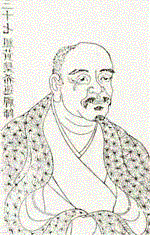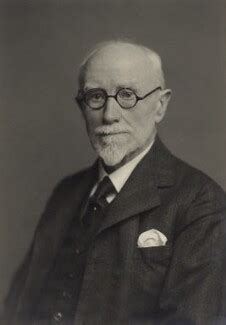A Quote by Fulton J. Sheen
Gaston Milhaud, like many of his contemporaries, sought to overthrow empirical positivism by insisting on the fundamental reality of the mind, but mind conceived in the Kantian sense. The knowledge of nature is symbolic, and there is no necessary connection between the phenomena and our fictions.
Related Quotes
If we wish to draw philosophical conclusions about our own existence, our significance, and the significance of the universe itself, our conclusions should be based on empirical knowledge. A truly open mind means forcing our imaginations to conform to the evidence of reality, and not vice versa, whether or not we like the implications.
In the final, the positive, state, the mind has given over the vain search after absolute notions, the origin and destination of the universe, and the causes of phenomena, and applies itself to the study of their laws - that is, their invariable relations of succession and resemblance. Reasoning and observation, duly combined, are the means of this knowledge. What is now understood when we speak of an explanation of facts is simply the establishment of a connection between single phenomena and some general facts.
The nature of the Absolute is neither perceptible nor imperceptible; and with phenomena it is just the same. But to one who has discovered his real nature, how can there be anywhere or anything separate from it?... ...Therefore it is said: 'The perception of a phenomenon IS the perception of the Universal Nature, since phenomena and Mind are one and the same.'
If all we know of mind is the aspect of mind that dissolves when we die, we will be left with no idea of what continues, no knowledge of the new dimension of the deeper reality of the nature of mind. So it is vital for us all to familiarize ourselves with the nature of mind while we are still alive. Only then will we be prepared for the time when it reveals itself spontaneously and powerfully at the moment of death; be able to recognize it "as naturally," the teachings say, "as a child running into its mother's lap"; and by remaining in that state, finally be liberated.
Knowledge is inherent in man; no knowledge comes from outside; it is all inside. We say Newton discovered gravitation. Was it sitting anywhere waiting for him? It was in his own mind; the time came and he found it out. All knowledge that the world has ever received comes from the mind; the infinite library of the universe is in our own mind. The external world is simply the suggestion, the occasion, which sets you to study your own mind.
One way of saying that is that there is an objective reality beyond our mind. A way to think of this in a philosophic sense is to look between the two great extremes: the idealist philosophy that says mind and consciousness is the only thing and that matter is simply an illusion, or a Maya, the product of mind; and the other extreme, a strict materialist determinism, which says that mind and consciousness is a secondary phenomenon of the collision of matter.
Nature is purposeless. Nature simply is. We may find nature beautiful or terrible, but those feelings are human constructions. Such utter and complete mindlessness is hard for us to accept. We feel such a strong connection to nature. But the relationship between nature and us is one-sided. There is no reciprocity. There is no mind on the other side of the wall.
At the core, there is one simple, overarching reason why so many people remain unsatisfied in their work and why most organisations fail to draw out the greatest talent, ingenuity, and creativity of their people and never become truly great, enduring organisations. It stems from an incomplete paradigm of who we are - our fundamental view of human nature. The fundamental reality is, human beings are not things needing to be motivated and controlled; they are four-dimensional - body, mind, heart, and spirit.





































